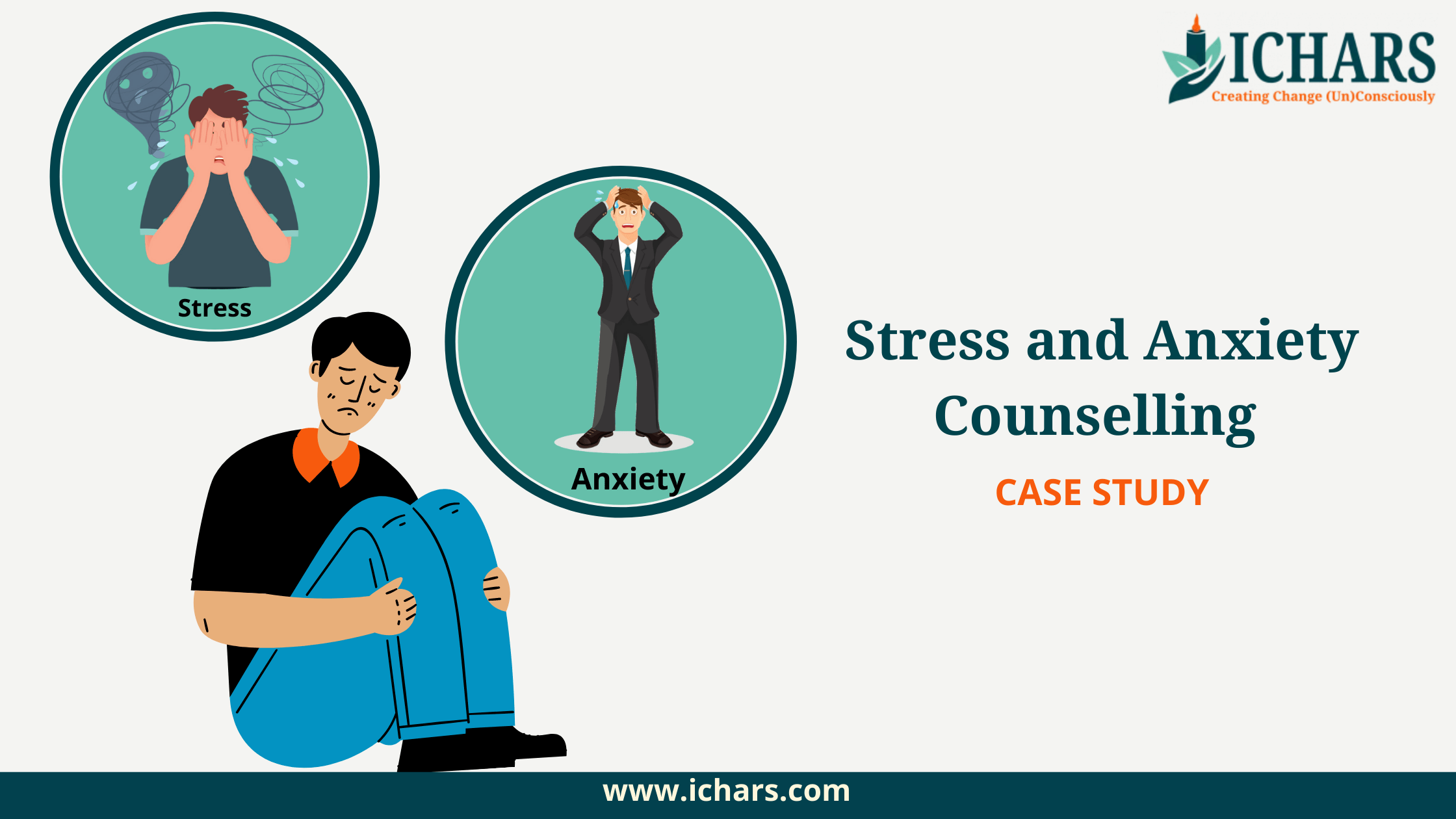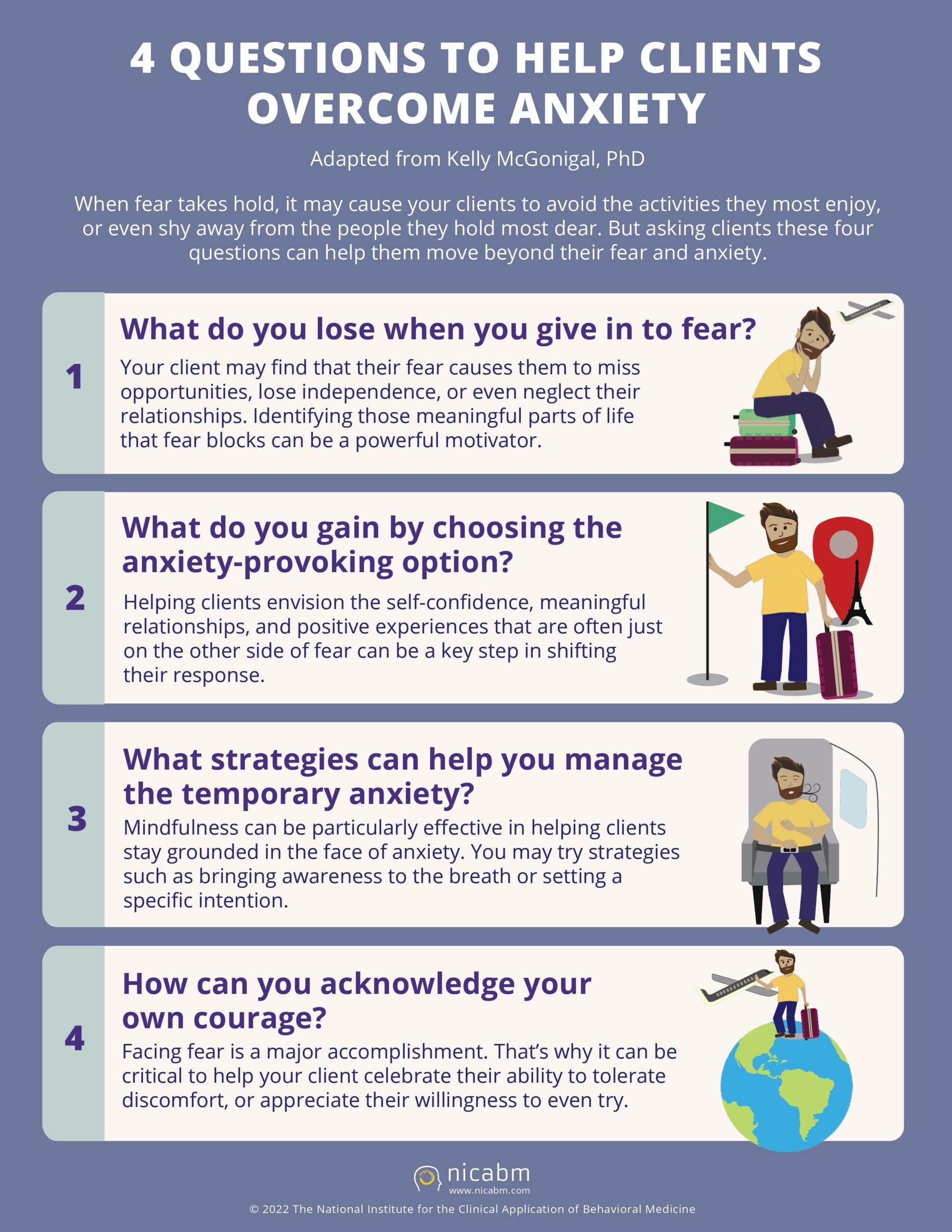Compassionate and experienced therapy for anxiety designed for you
Compassionate and experienced therapy for anxiety designed for you
Blog Article
Checking Out Various Approaches in Counselling for Stress And Anxiety Condition for Long-term Adjustment
When tackling anxiety disorders, it's important to explore a variety of counseling approaches. Each method provides unique understandings and tools to help you manage your signs effectively. You may discover that integrating methods can produce the finest outcomes. Nonetheless, understanding the subtleties of these strategies is key to fostering lasting adjustment. What if the best combination could launch a brand-new degree of emotional wellness for you?
Comprehending Stress And Anxiety Conditions: A Short Overview
Anxiousness conditions, which impact millions of individuals worldwide, can substantially influence life. You might experience frustrating sensations of concern or fret that seem uncontrollable. These sensations can cause physical symptoms like a racing heart, sweating, or perhaps lightheadedness. Common kinds of anxiousness conditions include generalised anxiousness condition, panic disorder, and social anxiousness disorder. Each has unique signs, yet they all share a tendency to disrupt your routine and relationships.Understanding the origin of your anxiousness is crucial. It might originate from genetics, mind chemistry, or life experiences. Recognizing your triggers can assist you handle your actions much better. It is very important to bear in mind that you're not the only one in this struggle. Numerous individuals face comparable challenges, and seeking aid is a strong action towards feeling much better. By finding out regarding anxiety problems, you're already on the course to understanding and managing your condition better.
Cognitive-Behavioral Therapy: Challenging Adverse Thought Patterns
In Cognitive-Behavioral Therapy, you'll start by recognizing the negative thought activates that contribute to your anxiety. You'll work on changing them with even more favorable alternatives when you identify these thoughts. Together, you'll develop reliable coping techniques to aid manage your stress and anxiety in daily situations.
Identifying Unfavorable Idea Triggers

When you experience moments of distress, acknowledging the details triggers behind your unfavorable thoughts can be vital in taking care of anxiety. Start by focusing on situations that provoke sensations of fear or concern. Is it a congested space, a future due date, or a conversation with certain individuals? Write down these circumstances in a journal. This will help you identify patterns in your reasoning. Notification physical experiences that accompany your adverse thoughts, like a racing heart or rigidity in your upper body. By identifying these triggers, you get insight into what's sustaining your stress and anxiety. Comprehending these connections is the primary step in challenging those ideas and inevitably reclaiming control over your psychological actions.
Changing Thoughts With Positives
Testing unfavorable thought patterns is a crucial action in changing your way of thinking and minimizing anxiousness. You may usually discover yourself trapped in cycles of insecurity or catastrophic thinking. As opposed to letting these thoughts determine your sensations, practice replacing them with favorable affirmations or reasonable options. For example, when you believe, "I can not manage this," change it to, "I can handle obstacles one step each time." This easy modification can significantly influence your mood. Consistently recognizing and responding to these unfavorable thoughts aids create a much healthier internal discussion. Bear in mind, it takes some time and effort, yet consistently practicing this technique can bring about long-term change, encouraging you to face anxiousness with renewed self-confidence and resilience.
Building Coping Techniques With Each Other
Changing negative thoughts is only the start of taking care of anxiety efficiently. To produce long lasting modification, you need to build coping strategies that empower you. Cognitive-Behavioral Treatment (CBT) helps you recognize and test those purposeless idea patterns. Together, you and your counselor can explore exactly how these thoughts influence your sensations and behaviors.Start by creating sensible strategies, like journaling or mindfulness workouts, that enable you to face stress and anxiety head-on. When you encounter your concerns progressively, you'll find out to react differently.

Mindfulness and Acceptance-Based Approaches: Growing Present-Moment Awareness
As you browse the complexities of anxiousness, integrating mindfulness and acceptance-based approaches can substantially improve your ability to grow present-moment awareness. By concentrating on the present moment, you'll discover that you can observe your thoughts and feelings without judgment (Counseling services for anxiety). This practice aids you recognize your anxiousness without really feeling overwhelmed by it.Engaging in mindfulness exercises, such as deep breathing, body scans, or directed meditations, allows you to ground on your own in your current experience. Acceptance-based strategies encourage you to accept your feelings instead of fight versus them. They shed their power over you.Incorporating these techniques into your everyday regimen can change just how you respond to stress and anxiety when you approve your sensations. You'll develop durability and find out to browse stressful circumstances with better ease. Eventually, cultivating present-moment understanding lays the foundation for enduring adjustment, empowering you to lead a more satisfying life
Exposure Therapy: Facing Concerns Progressively
Direct exposure therapy helps you confront your fears in a progressive method, making it less overwhelming. You'll discover methods to deal with anxiety-provoking circumstances action by action, while likewise developing coping methods to handle your responses. This technique equips you to take control and minimize stress and anxiety gradually.
Progressive Direct Exposure Methods

When dealing with anxiety, gradually facing your fears can be an effective method to regain control. This strategy, referred to as gradual direct exposure, includes slowly revealing yourself to the scenarios or items that cause your anxiousness. Start with much less challenging scenarios and progressively work your means approximately more tough ones. If you're scared of public talking, you might start by talking in front of a mirror, then proceed to sharing thoughts with a friend, and ultimately resolve a tiny team. Each action helps desensitize you to the anxiety, developing your self-confidence gradually. Bear in mind, it's vital to pace yourself and commemorate small victories as you relocate with this process, enhancing your capability to manage anxiousness successfully.
Structure Coping Techniques
Building efficient coping techniques is vital for managing stress and anxiety, especially as you face your anxieties progressively - Counseling services for anxiety. One powerful approach is direct exposure treatment, where you start by facing your worries in a controlled way. Begin with much less daunting scenarios and gradually function your means approximately even more tough circumstances. This steady exposure helps desensitize you to stress and anxiety causes, making them much less overwhelming.Incorporate relaxation methods, such as deep breathing or mindfulness, to relax your mind throughout direct exposure. Track your progression, celebrating small triumphes along the road to increase your confidence. Remember, it's okay to take your time; the objective isn't excellence but constant improvement. By constructing these strategies, you'll equip on your own to browse anxiousness and accept life much more totally
Psychodynamic Treatment: Revealing Source of Anxiousness
Psychodynamic treatment explores the subconscious mind, revealing the origin triggers of your anxiousness. By examining your ideas, feelings, and past experiences, this method helps you reveal underlying conflicts and unsettled issues that might add to your existing anxiousness. You'll collaborate with a therapist to investigate childhood experiences, partnerships, and psychological patterns that form your feedbacks her response today.As you acquire understanding right into these deeper layers of your mind, you'll begin to recognize just how past events influence your present behavior. This understanding can lead to catharsis, permitting you to process emotions you might have suppressed.Through the healing partnership, you can additionally identify defense reaction that may have established over time, offering a clearer path to alter. Eventually, psychodynamic treatment equips you with the tools to address your stress and anxiety at its core, promoting lasting makeover in your emotional well-being.
Alternative and integrative Approaches: Incorporating Strategies for Greater Efficacy
Integrating different restorative strategies can enhance your journey toward managing anxiety better. By combining components from cognitive-behavioral therapy, mindfulness methods, and all natural methods, you can create an individualized approach that addresses your unique requirements. You could utilize cognitive-behavioral strategies to test negative thought patterns while incorporating mindfulness exercises to ground yourself in the present moment.Additionally, exploring holistic practices such as yoga or meditation can promote relaxation and reduce anxiety symptoms. This mix allows you to develop higher self-awareness and resilience.Experimenting with these diverse methods can help you discover what resonates most with you. Bear in mind, it's regarding finding a synergy that functions, as opposed to adhering to a solitary strategy. This integrative approach not just uses prompt alleviation but likewise promotes long-term abilities for taking care of anxiousness, equipping you to recover control over your life.
The Role of Assistance Solutions: Building Strength With Connection
While it could appear that handling anxiety is a singular journey, having a solid support group can play a crucial function in your resilience. Bordering yourself with empathetic friends, family members, or support teams produces a safe room where you can freely share your experiences and feelings. When you get in touch with others, you advise yourself that you're not the only one in this struggle.These relationships supply support and can offer useful coping techniques that have actually helped others. It's additionally a chance to get perspective; close friends can assist you see scenarios differently, decreasing feelings of isolation.Moreover, psychological assistance promotes a feeling of belonging, which can considerably relieve anxiety symptoms. By leaning on your support group, you can build durability and take on challenges much more properly. Remember, reaching out for aid signifies strength, and it can make all the difference in your journey toward handling anxiousness.
Frequently Asked Questions
What Are the Typical Signs of Anxiousness Problems?
You might experience restlessness, tiredness, trouble focusing, irritability, muscle tension, and sleep disturbances. Physical signs can consist of quick heart beat, sweating, and shivering. Recognizing these signs early can help you seek proper assistance and therapy.
For How Long Does Therapy Commonly Last for Anxiousness Problems?
Treatment for anxiety disorders generally lasts anywhere from a few weeks to a number of months. It truly depends on your specific needs, progression, and the strategies your specialist makes use of to aid you handle your stress and anxiety successfully.
Can Drug Be Utilized Together With Therapy for Anxiety?
Yes, medication can definitely be used along with treatment for stress and anxiety. Combining both approaches typically enhances therapy performance, assisting you handle symptoms while discovering underlying concerns with counseling (Counseling services for anxiety). Constantly consult your medical care provider for tailored suggestions
Exist Self-Help Methods for Taking Care Of Stress And Anxiety?
Yes, there are a number of self-help strategies for handling anxiety. You can exercise mindfulness, participate in regular workout, maintain a well balanced diet, develop a routine, and make use of deep check my blog breathing methods to help in reducing anxiety signs effectively.
Just how Do I Know if I Need Expert Help for Stress And Anxiety?

Report this page